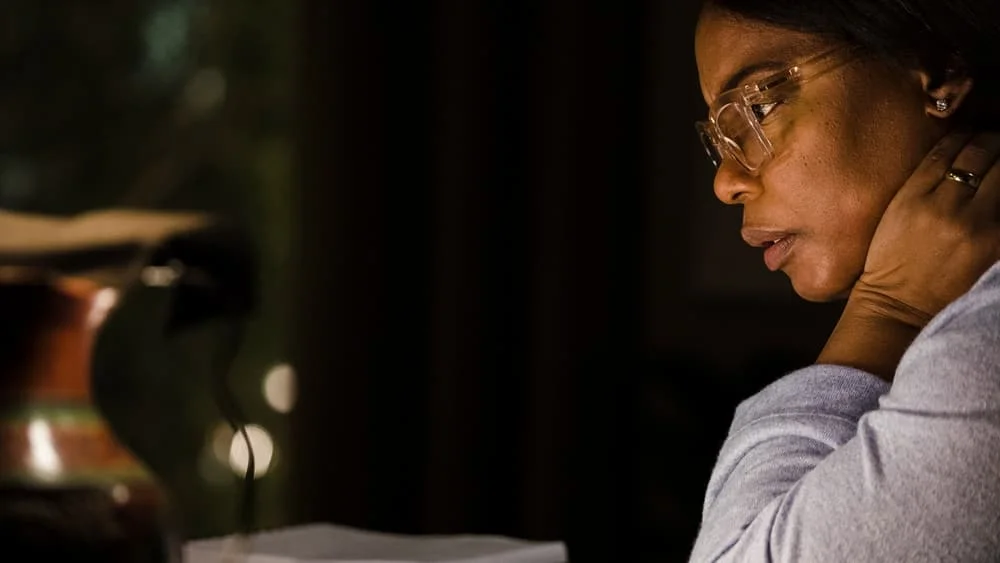“Just write a book,” my thoughts concluded several times throughout Ava DuVernay’s new two-and-a-half-hour dramatized university lecture, “Origin.” But then, of course, that would be a pointless endeavor as these ideas already are a book, “Caste: The Origins of Our Discontent.” Admittedly, attempting to adapt a nonfiction, non-narrative sociology book into a film is an overwhelmingly difficult task. It requires a radically unconventional approach and a deep understanding of how the cinematic medium works and what differentiates it from nonfiction writing. DuVernay does not have the requisite skills or knowledge to pull this off. She is not an artist but a storyteller — a buzzword in the industry of late that has gone hand-in-hand with the rise of “content.”
DuVernay sees film as merely a message delivery system, capable of spreading ideas to a mass audience better than an academic book could. While it certainly can be this due to its role as a populist art form, this is not the only thing film can do, nor is it the most meaningful or invigorating thing it can do. If you’re going to make a film, especially one based on ideas that already exist in another medium, your focus needs to be on how the aesthetic properties of cinema can enhance or change your understanding of those ideas.
Whatever DuVernay’s strengths as a writer (and I don’t think there are many), she is out of her element as a director. She has no feel for where to put the camera, opting for a loose handheld look that rarely captures a striking composition. The film’s soft, fuzzy look is sloppy more than aesthetically meaningful. By being so literal with what she shows, DuVernay undermines her film’s mission to expose the truth because every shot has a veneer of falseness. A documentary format using actual footage and images would have suited the material better and given her claims more weight. When the film finally does try to get formally daring in its final minutes, cross-cutting between dramatizations of the Holocaust, the Trayvon Martin murder, and violent, cramped slave ships, the power of the sequence relies entirely on the viewer buying into its arguments, which it hasn’t done well to convince you to do in the preceding two hours.
Focusing my criticisms of “Origin”’s formal deficiencies gives the film the most generous reading, which is to say, taking its thesis at face value and accepting what it says to be true. I haven’t read “Caste,” nor am I well-versed enough in that field of study to properly deconstruct all of its arguments, but I can take issue with the way DuVernay condenses and portrays these arguments in her film. Most importantly, I still don’t understand how these systems are linked or why that matters. DuVernay makes the similarities clear but asks you to disregard historical and cultural contexts to link them by association. In condensing a 500-page book, she asks you to take great leaps in logic to get to her final point — that these systems use the same strategies to stratify their societies — but apart from one moment where the film mentions that the Nazis based many laws on American segregation laws, the links between the systems are flimsy. It’s unclear whether the film argues that these systems are all working in tandem to keep certain types of people down or that this is the natural evolution of hierarchical societies. There’s no real point other than “these systems are similar,” which is not all that enlightening. “Origin” even includes a scene in which a German character argues to Wilkerson that the Holocaust and US Southern segregation are not the same because the intended results are different, an argument that the film fails to refute.
If the film is only interested in similarities, then it makes no sense for DuVernay not to reckon with how economic class systems can reflect the pillars of caste systems. There’s a scene in which Isabel Wilkerson is arguing with a man painting her house who refuses to take some of the waste because his bins are full before her future husband comes in and forces him to dispose of it by threatening to withhold pay for his labor. The film frames it as a reflection of the laborer’s part in the racial caste system, but the scene plays as Wilkerson and her husband dehumanizing the man rather than the other way around. His only worth is the value he provides to those he is serving. Along with contradictions like these, the film’s arguments also consistently get muddled and sidetracked by Isabel Wilkerson’s family drama, which DuVernay can’t convincingly connect to anything, and it seems like she only uses it as a conventional narrative crutch because she isn’t comfortable enough working in abstraction.
“Origin” is terrible, a film so caught up in its own “importance” that it overconfidently expects the audience to go along with its bullshit presentation. The film’s muddy, confusing arguments get lost in the uninteresting, conventional character drama that drives the narrative. It’s a pointless film adaptation that feels like someone reading the source material to you. Every creative decision by DuVernay is increasingly baffling until the film collapses under its own hubris with the final shot of Trayvon Martin’s ghost nodding and smiling at Isabel Wilkerson. If it all feels self-congratulatory, it’s because it is.

